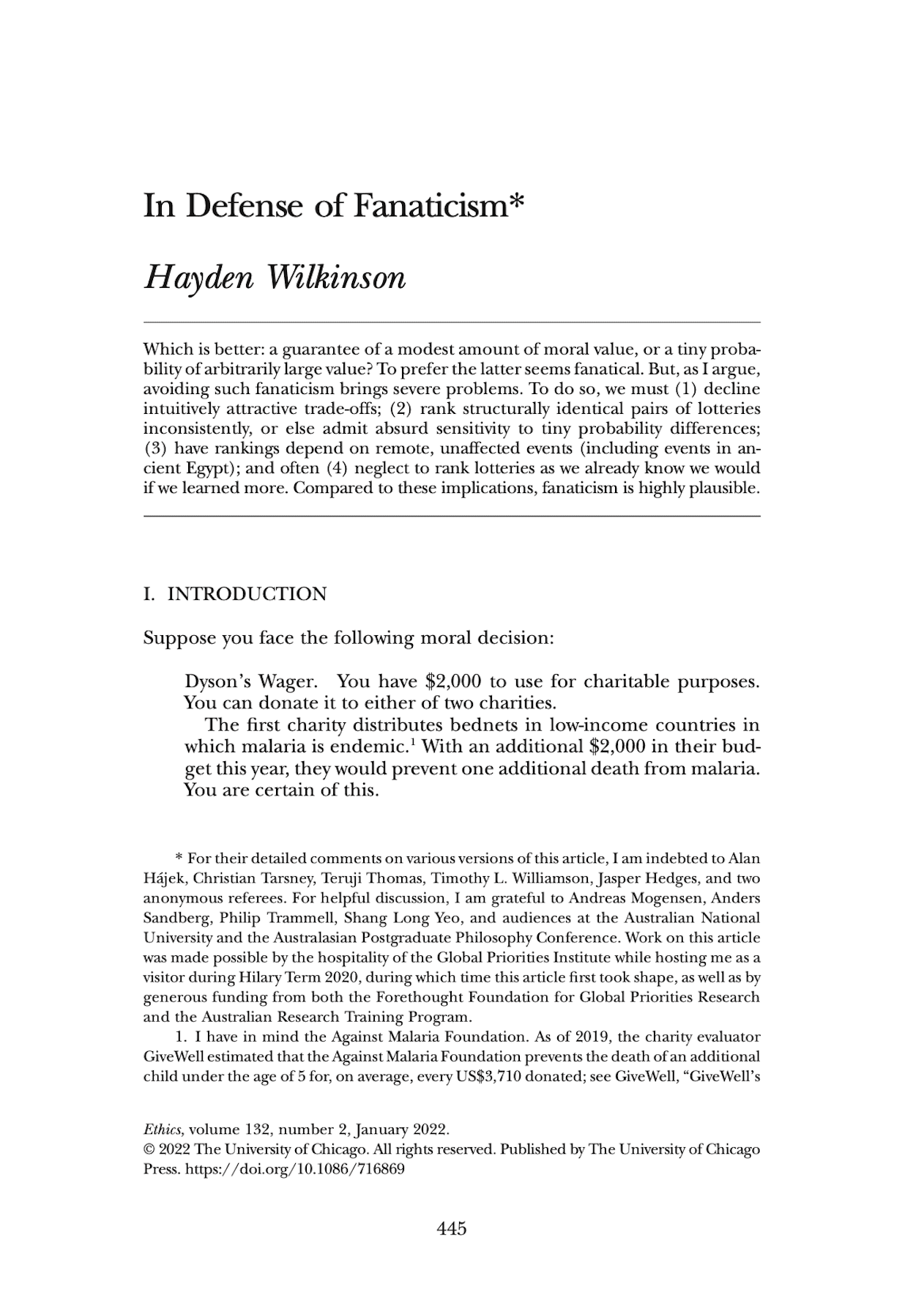In defence of fanaticism
Hayden Wilkinson (Australian National University)
GPI Working Paper No. 4-2020, published in Ethics
Which is better: a guarantee of a modest amount of moral value, or a tiny probability of arbitrarily large value? To prefer the latter seems fanatical. But, as I argue, avoiding such fanaticism brings severe problems. To do so, we must (1) decline intuitively attractive trade-offs; (2) rank structurally identical pairs of lotteries inconsistently, or else admit absurd sensitivity to tiny probability differences;(3) have rankings depend on remote, unaffected events (including events in ancient Egypt); and often (4) neglect to rank lotteries as we already know we would if we learned more. Compared to these implications, fanaticism is highly plausible
Other working papers
Shutdownable Agents through POST-Agency – Elliott Thornley (Global Priorities Institute, University of Oxford)
Many fear that future artificial agents will resist shutdown. I present an idea – the POST-Agents Proposal – for ensuring that doesn’t happen. I propose that we train agents to satisfy Preferences Only Between Same-Length Trajectories (POST). I then prove that POST – together with other conditions – implies Neutrality+: the agent maximizes expected utility, ignoring the probability distribution over trajectory-lengths. I argue that Neutrality+ keeps agents shutdownable and allows them to be useful.
When should an effective altruist donate? – William MacAskill (Global Priorities Institute, Oxford University)
Effective altruism is the use of evidence and careful reasoning to work out how to maximize positive impact on others with a given unit of resources, and the taking of action on that basis. It’s a philosophy and a social movement that is gaining considerable steam in the philanthropic world. For example,…
Maximal cluelessness – Andreas Mogensen (Global Priorities Institute, Oxford University)
I argue that many of the priority rankings that have been proposed by effective altruists seem to be in tension with apparently reasonable assumptions about the rational pursuit of our aims in the face of uncertainty. The particular issue on which I focus arises from recognition of the overwhelming importance…

